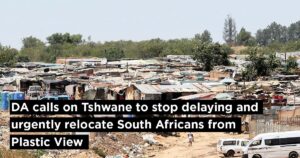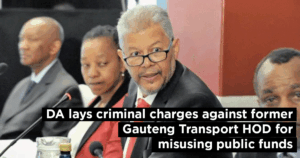The situation in Gauteng schools has reached a breaking point, as over R58 million in unpaid utility bills have led to electricity and water disconnections. This has made it impossible to provide lighting in classrooms, power educational technology, and maintain hygiene and safety standards. As a result, stress levels are increasing, and morale is plummeting among learners and educators. Meanwhile, the Gauteng Department of Education (GDE) continues to avoid responsibility insisting that no-fee paying schools pay utility bills.
The Democratic Alliance (DA) in Gauteng reiterates its demand for GDE to reverse its decision for no-fee schools to be responsible for paying their utility bills and the creation of a task team to resolve municipal disputes and prevent disconnections.
In a written reply to questions tabled by the DA in the Gauteng Provincial Legislature (GPL), Education MEC Matome Chiloane indicates that 536 schools have experienced electricity and/or water disconnections since January 2024, up from 525 schools previously reported.
More alarming is the confirmation that these schools collectively owe over R58 586 285,04, an amount the department admits it could not settle in the 2024/2025 financial year. The department has claimed that all debts will be cleared by 30 June 2025, but no evidence has been provided to confirm this.
The DA’s follow-up questions aimed to clarify the duration of school disconnections, affected services, notifications to schools, and support provided. However, the MEC responded vaguely, referencing previous annexures and replies that omit critical details or do not address the questions asked.
This evasive approach is unacceptable. The utility crisis has serious implications for learners’ dignity, health, and access to quality education, particularly in schools with limited resources to cope.
A DA-led Gauteng Provincial Government would ensure the timely payment of all school and municipal accounts. An intergovernmental task team would be set up in the MEC’s office to monitor billing, resolve disputes, and prevent disconnections. In emergencies, generators, water tankers, and ablution facilities would be provided. Long-term plans would include solar power and boreholes.
The DA will continue to hold the GDE accountable for its financial neglect which is affecting the education system in the province. We will fight until every learner has access to a safe, dignified, and uninterrupted learning environment.









